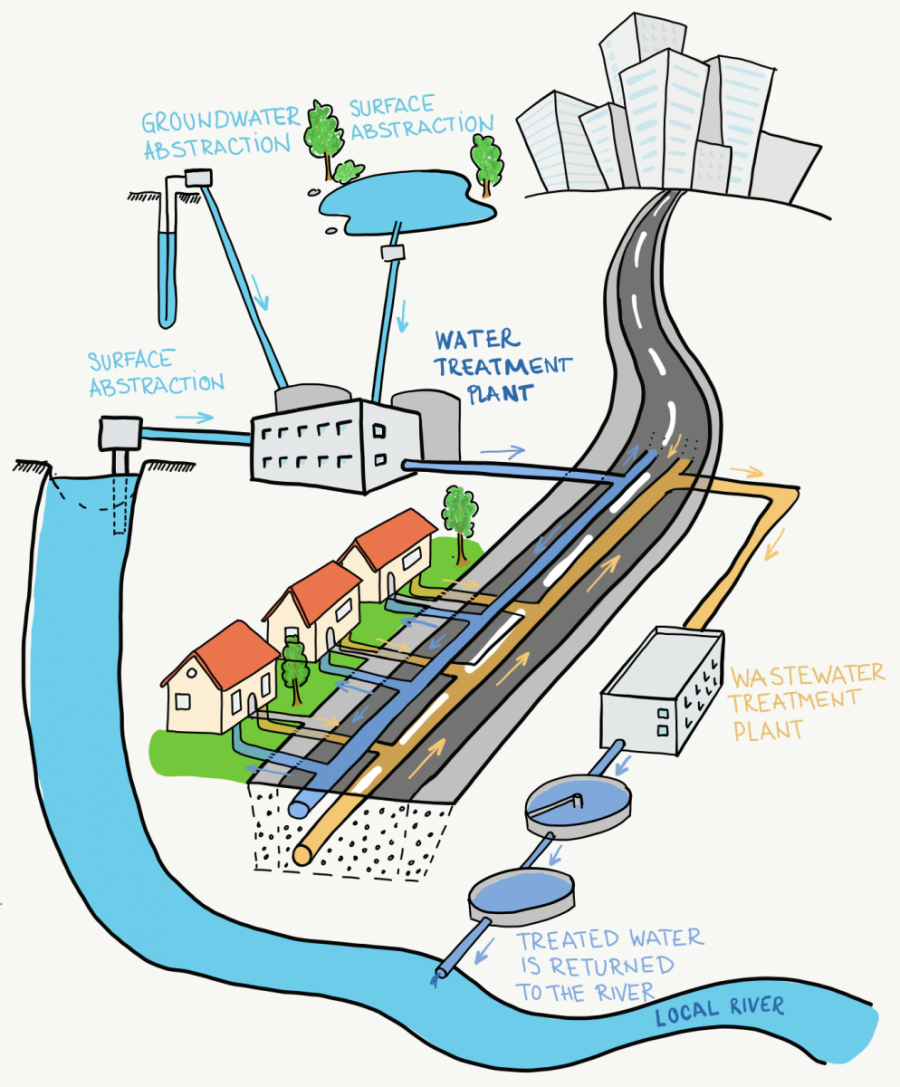Former SESYNC Postdoc Tijana Jovanovic is the team lead on a new initative designed to integrate water management into schools' curricula. Jovanovic, now a Surface/Subsurface Hydrological Modeller with the British Geological Survey, will be leading the project for Community Water Management for a Liveable London (CAMELLIA), a research program funded by the Natural Environment Research Council, involving Imperial College London, the British Geological Survey, University College London, and University of Oxford. CAMELLIA works to "bring together innovative science with communities and stakeholders in London to promote sustainable water management and a better environment as the city grows." Learn more about the project below and why it's needed from Tijana herself, in this blog that was originally published on CAMELLIA's website.

Integrating Water Management Teaching in Schools—Why Is It Important?
By: Tijana Jovanovic
I am a hydrologist and water resources engineer, meaning I model how water moves within the Earth’s water cycle and how much water is available across the landscape. The matter of incorporating hydrology and water resources management into society’s general knowledge has always been of great interest to me as I believe it is the only way we can strive to achieve a sustainable water future.
For some time, scientists and engineers have been researching the joint impact of climate change and population increase on water resources and have been engaging citizens on the matter, as well as racing to improve the technology for better monitoring and efficiency in the water sector. As citizens, we know water is essential to life, but we don’t ask ourselves where our next glass of water will come from or how much water has been used to produce our food, our clothes or our transport.
So, despite the progress made so far in the science and engineering fields I often wonder - will the message reach enough people before we find ourselves completely unprepared to deal with serious threats such as increased flooding and droughts? And if water is such an integral part of our life, why aren’t water resources and water protection part of our general education?
CAMELLIA’s role, which I will coordinate, will be to provide expertise in interpreting complex concepts from water resources management and hydrological modelling, linking them to real-world problems and finally translating everything into teaching materials in the form of case studies. These will create a space for students to engage in role play activities where they become the scientist, water expert or engineer who works to solve the problem of water shortages under droughts, regulating water extraction to maintain environmental balance. Our team will co-design the tools with teachers from Thames21’s partner schools to create materials that are comprehensible and easy for teachers and students to use. Thames21 has a history of working with London schools, and they bring extensive experience and connections to the partnership.
Having a society that understands how ensuring good water quality in their local rivers and streams begins in their house, backyard, and street, and are knowledgeable of the current problems across the water sector, could be the key for securing the UK’s water future. If we start including water education into the secondary school curriculum today and keep the momentum going, in 40 to 50 years the students who had learnt about the subject would be in the majority of UK adult population. This is why it is so important we empower new generations now with the knowledge and tools to identify water problems, speak up and be willing to collaborate in implementing solutions.
Originally published here: https://www.camelliawater.org/post/integrating-water-management-teaching-in-schools-why-is-it-important